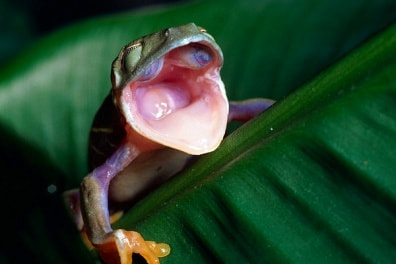It can seem that yawning is contagious but, in reality, only 60-70% of humans "catch" a yawn if they see another person yawning, either in real life or in a picture. Some of you may yawn as you read this blog on yawning. Contagious yawning can also occur in animals, but it doesn't necessarily happen the same way as it does in humans.
Scientists have proposed many reasons why humans yawn and here are some of the top ones:
1. Yawning signals empathy. Contagious yawning serves as nonverbal communication. Catching someone's yawn shows that you're attuned to them. A 2010 study at the University of California showed that contagious yawning doesn't happen in children until the age of four years...the same age that empathy skills start to kick in. Other studies have shown that humans with impaired empathy development are less likely to catch a yawn. But the findings are inconclusive. Another study proved there was no correlation between empathy, sleepiness, and energy levels with contagious yawning. What was found, however, is that contagious yawning is a stable trait. If you're a contagious yawner, you'll always be a contagious yawner. That same Duke University study also showed no link between yawing and intelligence, but did find a correlation with age. The older participants of the study were less likely to yawn. However, age-related yawning only accounted for 8% of the responses.
2. Contagious yawning in animals. These studies may show us a link between how animals yawn and what makes humans yawn. A study done at the Primate Research Institute of Kyoto, Japan showed that young chimps, much like their human counterparts, didn't yawn which shows that they,too, probably lacked the intellectual development needed to catch a yawn. Another interesting fact that was discovered, was that chimps only only yawned in response to videos of chimps actually yawning, not to videos of chimps just opening their mouths. A University of London study showed that dogs could catch a yawn from a human and, like the chimps, didn't respond when the human merely opened their mouth. Their study also supported the correlation between yawning and age. Only puppies older than seven months could yawn. Although cats do yawn, it is less common to have them yawn after seeing a human do it. Contagious yawning in animals may also serve as a form of communication. Siamese fighting fish yawn when they see their mirror image or another fighting fish, generally just prior to an attack. This might be attributed to threat behavior. It could also serve to oxygenate the fish's tissues prior to exertion. Adelie and emperor penguins yawn at one another as part of their mating ritual. This isn't quite so true with humans!
3. Contagious yawning is linked to temperature, in both humans and animals. Most scientists believe it is a thermoregulatory behavior. Some researchers believe it is used to communicate a potential threat or stressful situation.
4. People commonly yawn when tired or bored. Similar behavior has been observed in animals, as well. One study found that the brain temperature in sleep-deprived rats was higher than their core temperature. Yawning reduced brain temperature, possibly improving brain function. Contagious yawning could act as a social behavior signaling that it's time for a group nap.
So what does this all mean? Not much, really; scientists aren't certain why contagious yawning occurs. It's been linked to empathy, age, and temperature. But yet the underlying reason why isn't well understood. Not everyone catches a yawn, we know that now, but for those of you who do, it can be darn irritating when you simply can't stop yawning, like right now.
Time for a little nap, perhaps? I know I'm up for one!
"Life is too short, and the time we spend yawning can never be regained." ~ Stendhal

 RSS Feed
RSS Feed